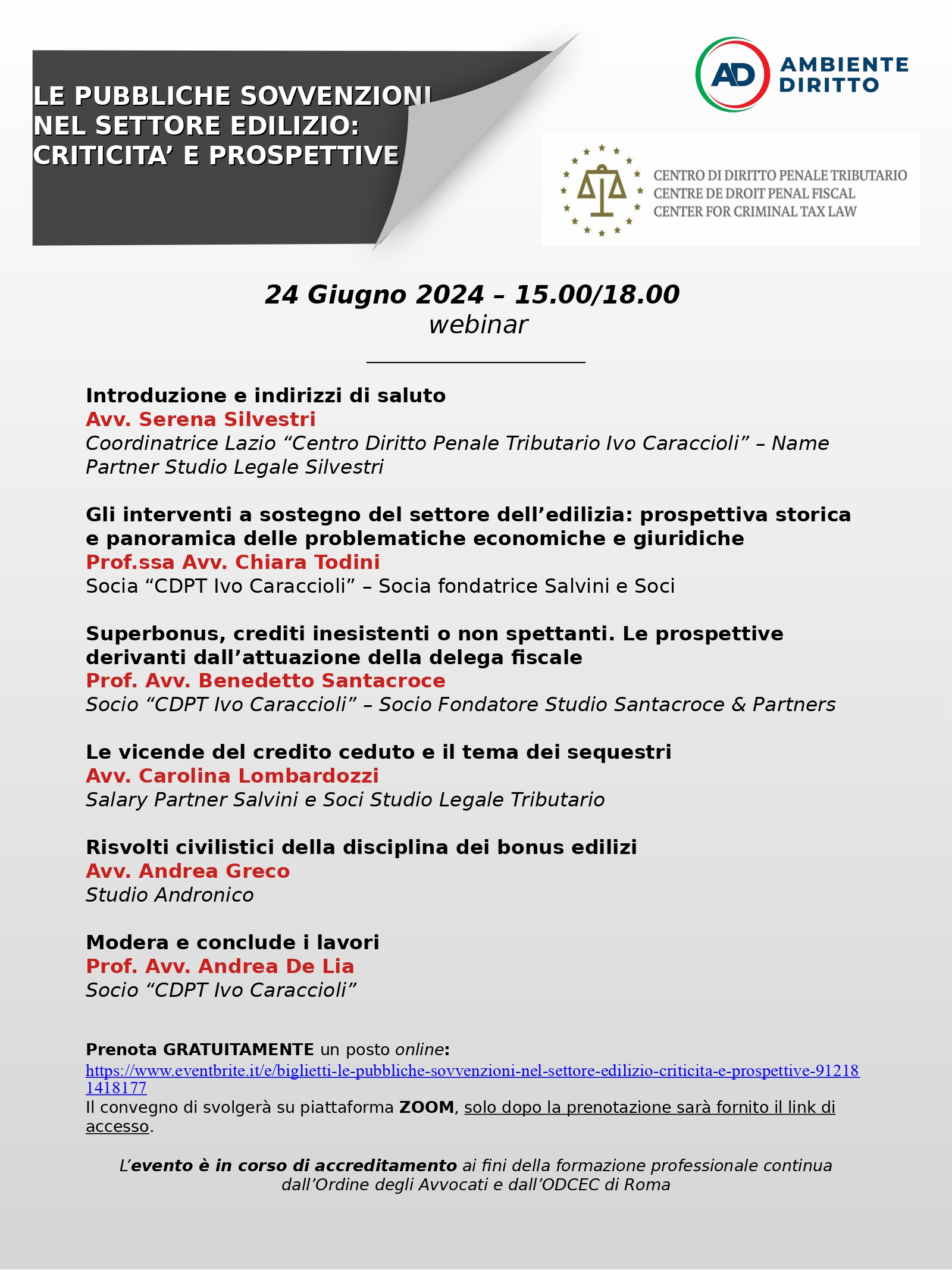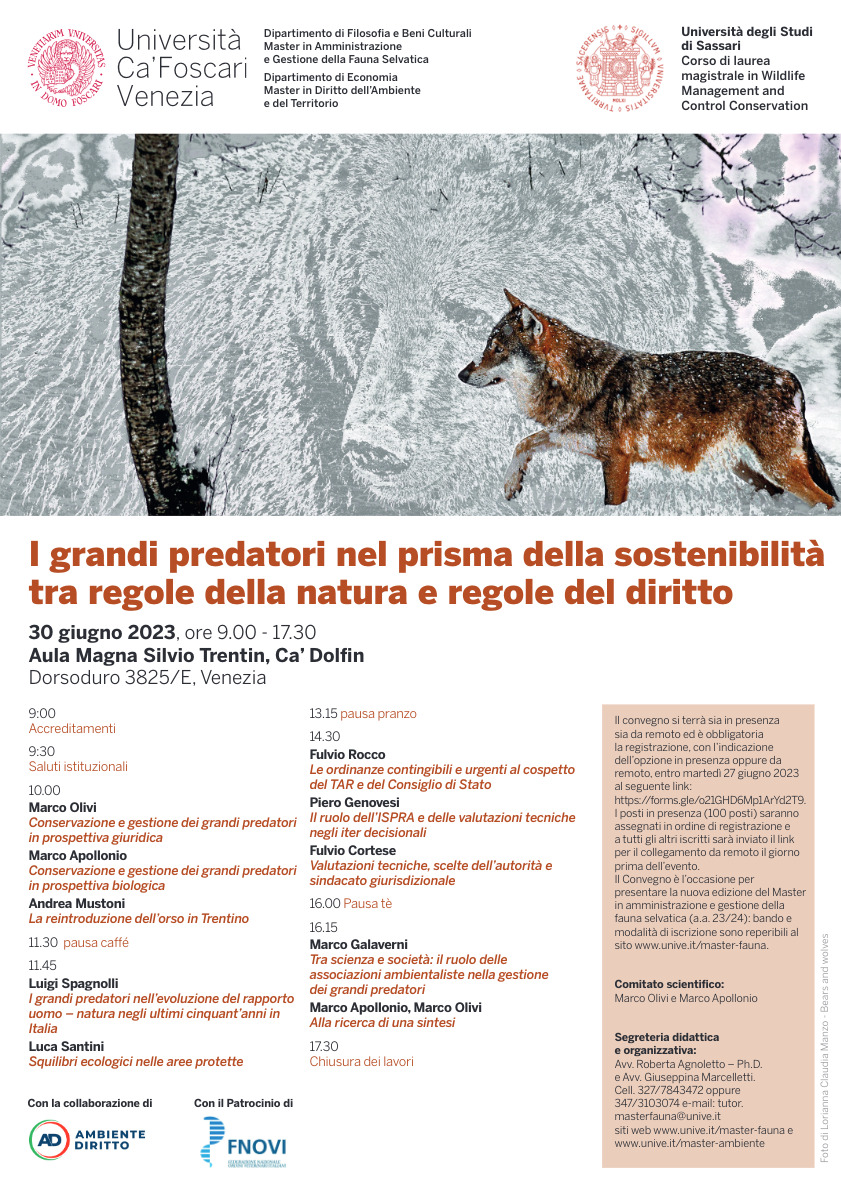______________ AMBIENTEDIRITTO ______________
L’INTERESSE DELLE FUTURE GENERAZIONI: RAGIONAMENTI FALLACI E INTERPRETAZIONI SOSTENIBILI.
Francesco Cirillo
Abstract (it.): L’introduzione nell’art. 9 Cost. del richiamo alle generazioni future rievoca il dibattito della dottrina sulla loro presunta soggettività giuridica. L’occasione impone di affrontare un’indagine teorico- costituzionalistica, anche in chiave comparata, soprattutto con riferimento al richiamo alle künftigen Generationen di cui all’art. 20a GG (introdotto nel 1994) e alla giurisprudenza costituzionale tedesca (da ultimo, analizzando il Klimabeschluss del marzo 2021). Dall’indagine risulterebbe che il richiamo, ancorché necessario e pregnante a fini retorici, ripeta sul fronte applicativo gli stessi limiti indagati a livello teorico. Infatti, la prospettiva della conservazione dello status quo nei confronti di un’indistinta posterità mostra diverse criticità: presuppone l’idea di un’umanità del futuro identica a quella presente nei bisogni, nelle risorse impiegate, nel numero di individui, in un’immagine antistorica e forse naïve; poi, l’idea della conservazione, del passaggio di testimone tra le generazioni, sottovaluta l’onere dinamico che grava sulle generazioni presenti nella creazione (attiva, non solo conservativa) di un’ambiente migliore. Nell’attesa delle possibili letture del richiamo alla posterità da parte della Corte italiana, si auspica che la giurisprudenza costituzionale non si ritrovi ancora una volta chiamata a fronteggiare le omissioni e gli errori di una politica troppo spesso disattenta.
Abstract (eng.): The introduction in Art. 9 of the Constitution of the reference to future generations recalls the debate of the doctrine on their presumed juridical subjectivity. The occasion requires us to face a theoretical-constitutional investigation in a comparative key, especially concerning the künftigen Generationen of Art. 20a GG (introduced in 1994) and German constitutional case law (most recently, the Klimabeschluss of March 2021). The investigation would show that the reference, although necessary and meaningful for rhetorical purposes, repeats the same limits investigated theoretically on applying the principle. The perspective of the conservation of the status quo towards an indistinct posterity shows several criticalities: it presupposes the idea of the humanity of the future identical to the present one in terms of needs, resources employed, number of individuals, an image unhistorical and perhaps naïve; then, the idea of conservation, of the passing of the baton among generations, underestimates the dynamic burden that weighs on the generations present in the creation (active, not only conservative) of a better environment. While waiting for the possible readings of the reference to posterity by the Italian Court, it is hoped that constitutional jurisprudence will not be called again to face the omissions and errors of a too-often inattentive policy.
Keywords: diritti, generazioni future, Germania, art. 20° GG; art. 9 Cost.
SOMMARIO: 1. Una sostenibilità giuridica. – 2. I diritti delle generazioni future. – 3. Un richiamo “anche” alle generazioni future. – 4. Sull’interesse (tedesco e italiano) per le generazioni future.
Scarica allegato





 AMBIENTEDIRITTO.IT EDITORE
AMBIENTEDIRITTO.IT EDITORE